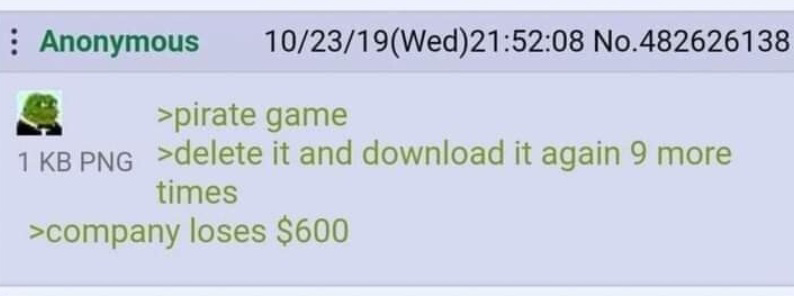this post was submitted on 13 Sep 2023
885 points (98.9% liked)
> Greentext
8266 readers
1 users here now
founded 3 years ago
MODERATORS
you are viewing a single comment's thread
view the rest of the comments
view the rest of the comments

You're going to get to! That's what they will actually be doing if the class action lawsuits don't crash them.
I'm pretty sure devs can just withold payment after Jan 1, and for games already released if Unity wants the money they would be forced to sue the dev for not adhering to their illegal and unenforceable contract. They would have to prove the validity of their per-unit charges without having actually ever measured the units.
That would mean no more updates ever though. And anyone currently developing a game in unity gets fucked too.
Yeah, so in this hypothetical eventuality they rob themselves of income in relation to games already released, as well as goodwill in relation to games in production or planned for production in Unity. Seems to me like a recipe for backing down on one or the other.
The other side of it is if someone has agreed to the new terms and released a game, and that game is pirated, Unity has no way of knowing what percentage of installs are legitimate, then there are purchasers who upgrade their computer and reinstall the game under the original license, and those who bought it but never installed it (look at my stem library if you don't think that happens!)
There is no way to calculate the number of legit installs. You can get close with the game company's sales data (but Unity doesn't have that)
So a games company could wait to get sued, then go to court and ask for Unity to show how they calculated the number of genuine installations
Unity will not be able to show a working method of calculating that as there is none